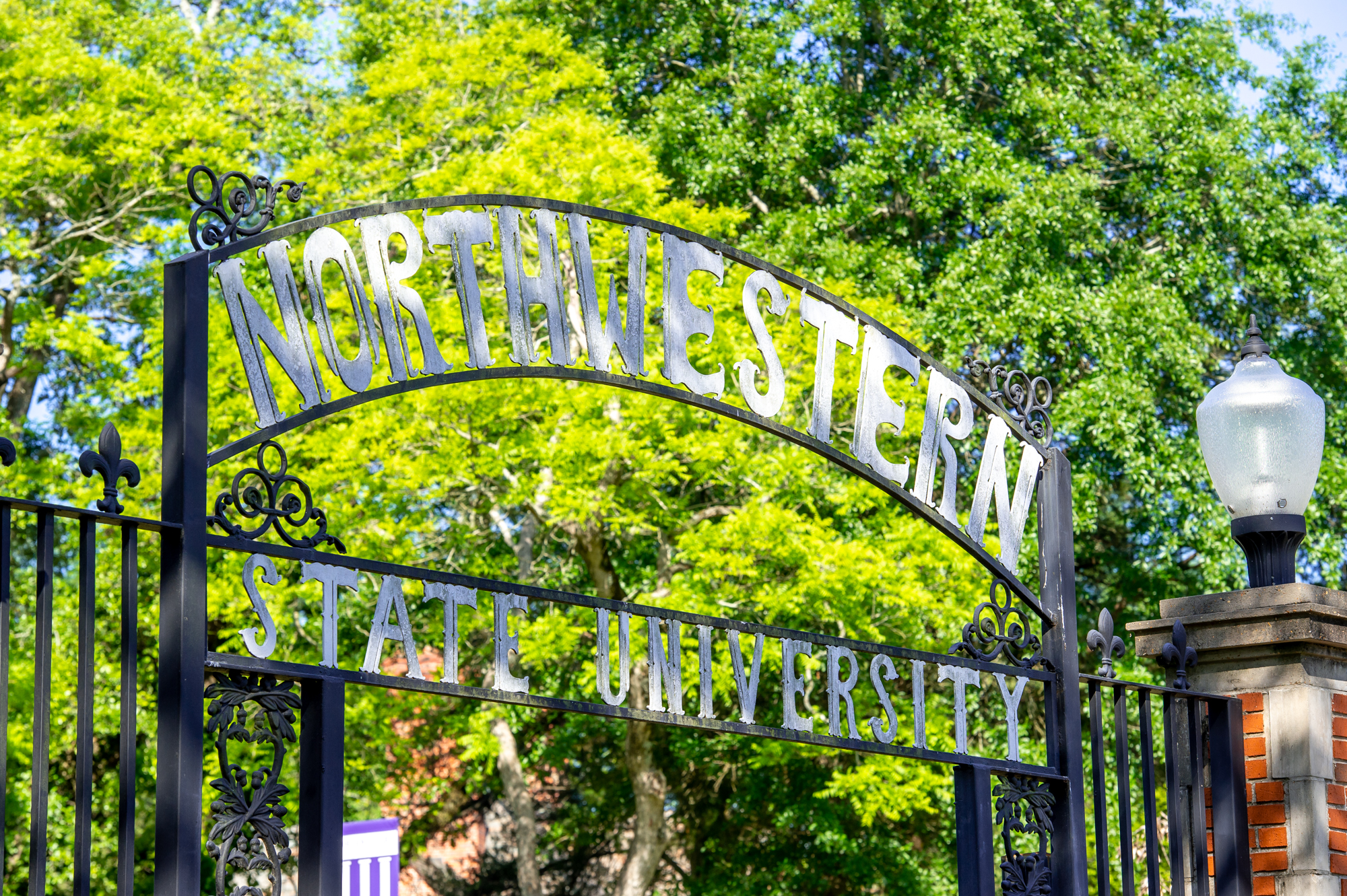NATCHITOCHES – J’Marquiez Robinson has a goal in mind. That goal is receiving a degree in December from Northwestern State University. Robinson’s objective is about four months away largely because he was able to utilize the Student Support Services program at NSU, which has received a five-year Title IV grant of $2,340,000 from the U.S. Department of Education.
The Student Support Services (SSS) program is a federal TRIO program that works to support students who are first-generation, low-income or students with disabilities who have potential to meet the challenges of higher education by strengthening and developing their academic and self-management skills. Its offices are in the Kyser Hall, Room 243-B.
“This program has helped by giving me the opportunity to feel great about myself,” said Robinson, a criminal justice major from Haynesville. “Being a member of this program makes you feel prouder of yourself because it helps you realize that you’re a first-generation college student and it is definitely something to be proud of.”
The latest available statistics show that 61 percent of Student Support Services participants graduate, a rate that is one third higher than NSU’s overall graduation rate.
According to Robinson, SSS staff helped him academically and financially by helping him take advantage of available scholarships.
“The advisors of Student Support Services are like your parents away from home because if you’re slacking, they give a talk you need to hear,” he said. “I’m very thankful for everything they have done for and taught me during my time at Northwestern State.”
Robinson was raised by his mother and grandmother. His great-grandfather nicknamed him Bulo. At Haynesville High School, he was a member of two state championship football teams. His mother attended college for one semester then joined the military.
My mother and grandmother made me who I am today, and they will always have a special place in my heart,” said Robinson. “I will be the first of mom’s children to graduate from college. I am definitely looking forward to accomplishing that goal.”
Robinson has worked for the past year as a peer mentor in the Student Support Services office.
“I definitely enjoy it,” said Robinson. “When freshmen come to college, it’s their first time being away from home, so it’s good to let them know that you are here for them and to give them advice on their first year of college.”
Because of SSS advising sessions, Robinson has been able to prepare for a career in law enforcement by joining the Natchitoches Police Reserve. During the eight-week academy, Robinson went to the shooting range, did defensive tactics and was hit with a taser and mace. He also took part in traffic stops and building clearance, which Robinson said was his favorite part.
“Getting the opportunity to patrol definitely made me realize law enforcement is something I want to do with my life,” said Robinson.
Robinson is 14 hours shy of his degree and plans to join the Dallas Police Department after graduating.
The Student Support Services Program’s goal is to increase college retention and graduation rates.
“This is accomplished by fostering a supportive climate,” said Program Director Frances Welch. “We provide holistic services for academic, career, financial and social development of participants. These services and resources include peer tutoring, financial literacy education, grants, workshops, courses for credit, peer mentoring, health initiatives, a Registered Student Organization and a resource library. We serve 360 students of which 270 must be both low-income and first-generation.”
Welch said the program is evaluated yearly by the U.S. Department of Education based upon three objectives which are persistence rate, good academic standing and graduation rate.
The goal for persistence rate is that 75 percent of all SSS participants will persist from one academic year to the beginning of the next academic year or will have earned a bachelor’s degree.
Under good academic standing, 89 percent of all enrolled SSS participants being served will meet the performance level to stay in good academic standing at NSU.
Their objective is that 44 percent of new participants served each year will graduate from NSU with a bachelor’s degree or equivalent within 4-6 years.
The program met all of its performance goals, Welch said.
The TRIO SSS grant allows the university to employ six staff members, five on the Natchitoches campus, and one on the College of Nursing and School of Allied Health campus in Shreveport, according to Welch. She said the grant provides funding to hire peer tutors on the Natchitoches, Shreveport and Alexandria campuses to support the program’s mission.
For more information on the Student Support Services program at NSU, go to nsula.edu/sss.


